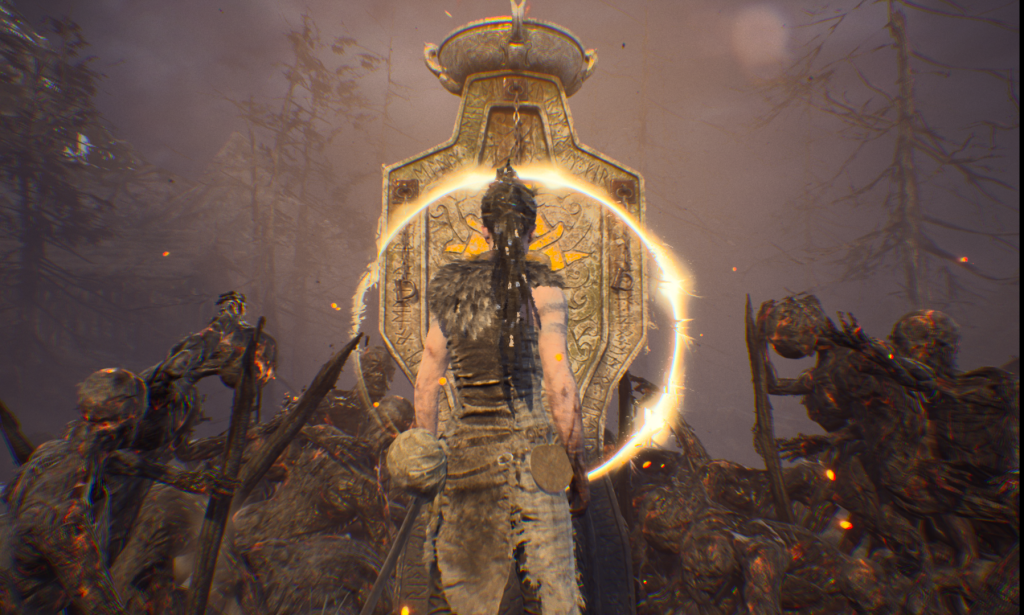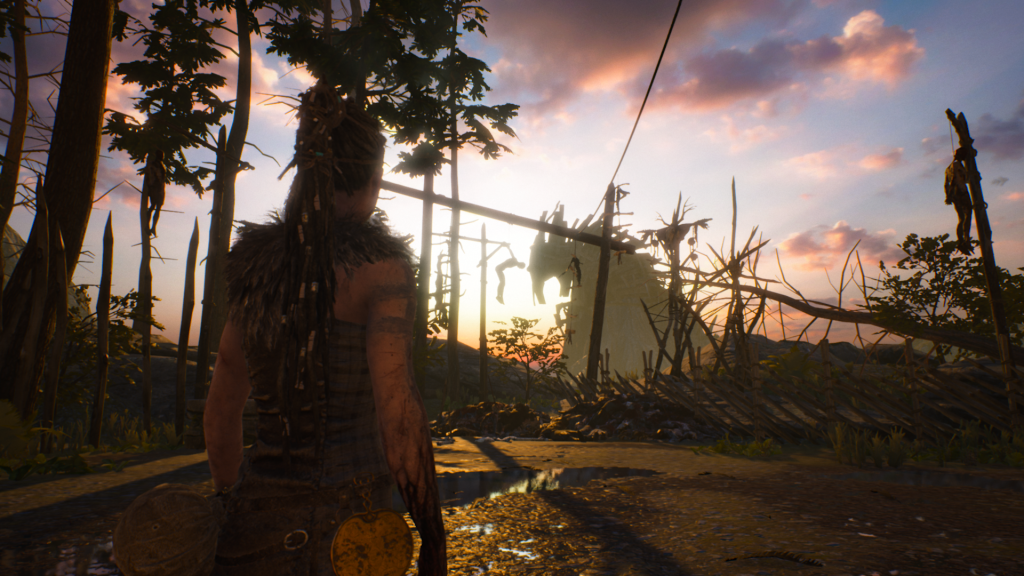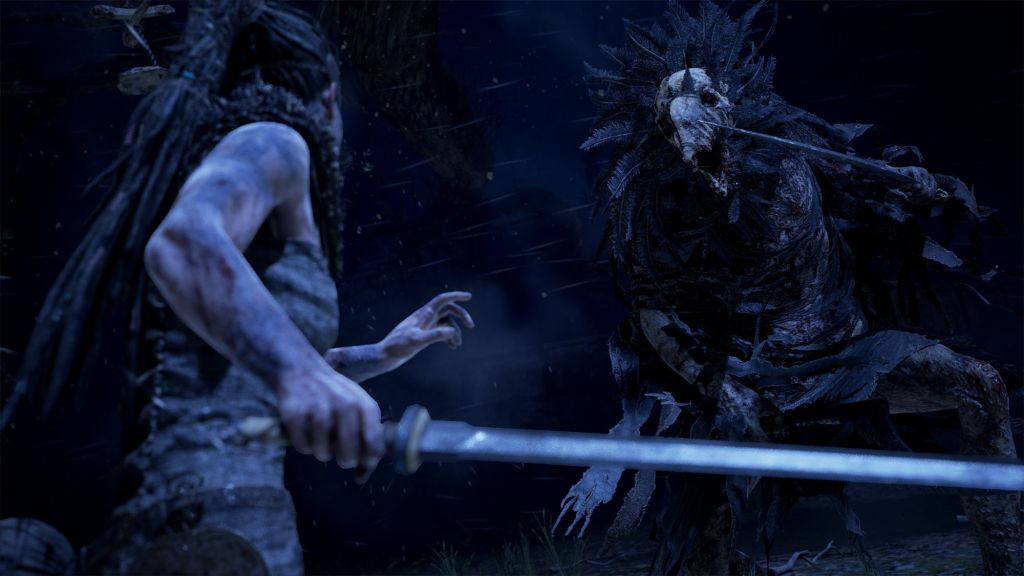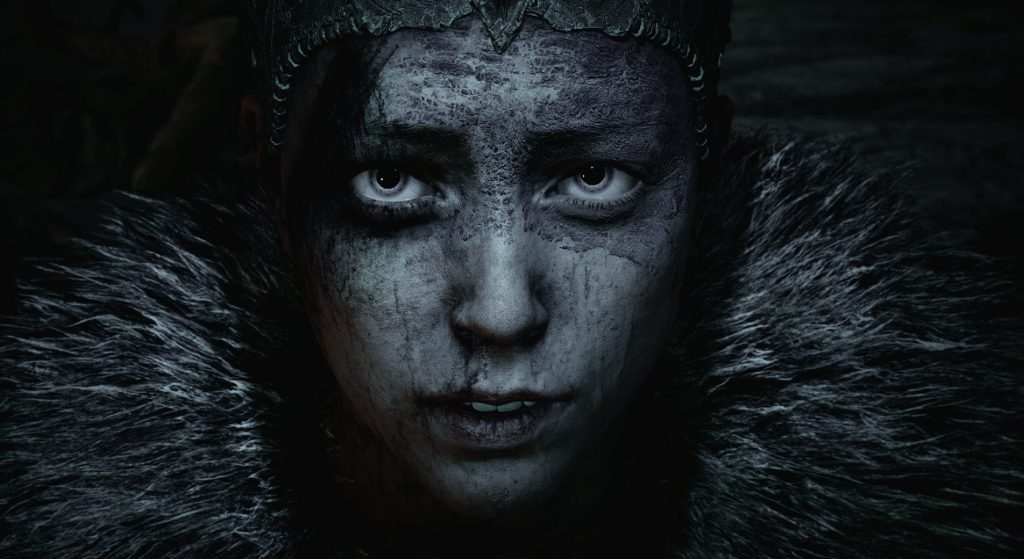Hellblade: Senua’s Sacrifice is a game that makes its intentions clear right from the beginning. This is a game about a woman with psychosis, and it aims to provide an authentic representation of the experience through simulated auditory and visual hallucinations. It does this through the accumulation of research and expertise provided by academic researchers and those with firsthand experience dealing with schizophrenia, as well as the accompanying technology required for such a feat, like binaural microphones to simulate 3D space.

Playing this game with headphones is the ideal way to go, and in practice it is disturbing and illuminating in all the right ways. Of course, the interpretation of a highly personal mental health experience is never going to be completely accurate, and like any piece of art it inevitably falls victim to a little instinctual artistic flair, but on the whole the game has been received well, and developer Ninja Theory has been applauded for the lengths they went to ensure their representation of the condition was as respectful as possible.
However, the game is no stranger to criticism. I only played it recently, but I remember when the game first released, the word ‘pretentious’ came up a lot, and ‘Oscar bait’. As a widened sage once said of The Godfather, “it insists upon itself”. I can see why you might jump to that conclusion. Hellblade is incredibly unambiguous about its aims and perspective. It starts with the opening content warning explaining the game’s depiction of psychosis, and it shows in the very confrontational lead performance, as well as the voices in Senua’s head often waxing philosophical about mental health, the struggles involved with its impact, and the way social stigma exacerbates those problems. It’s very unsubtle about its themes and perspectives, and I think that rubbed a lot of people the wrong way, like it was telling them to feel a certain way.

I can understand feeling uncomfortable about that. Oftentimes, the best art is that which asks questions, rather than spelling out answers. Hellblade is mostly in the latter camp, at least to start with, and sometimes that can come across as the work talking down to its audience, rather than inviting them into a conversation. I think the game definitely feels that way at first, but if you give it time to flourish, Hellblade makes its case clear: this is definitively Senua’s story, but that doesn’t mean it is yours. The ending certainly evokes that feeling, with the protagonist looking into the camera and inviting the player to join her in what comes next. This might play like sequel bait, especially since a sequel did eventually get made, but to me, it reads as the game acknowledging that just because this story is over, that doesn’t mean Senua’s story – her Saga, if you will – ends here, and neither does yours. No matter what, even if you didn’t like the game, Senua’s tale is now a part of yours, and you’re encouraged to join her in whatever comes after the credits roll. It’s neat!
While video games can be an effective way to exist as yourself in another world, they are also exceptional empathy machines. It’s a medium that is, better than any other in my opinion, capable of grounding you in the story of another person, and experiencing the world through their eyes. That is what Hellblade excels at. There’s the obvious audiovisual experience meant to evoke the experience of having psychosis, but there’s also the weighty and difficult combat which made me feel a strong feeling of visceral desperation, and Senua’s habits of staring right down the camera lens, not allowing you to switch off for even a second.

On top of that, there’s a devilish decision by the developers to tell you at the beginning that if Senua dies too many times – in other words, if you make too many mistakes – then the game will end and all your progress will be lost. This evil promise gave every potentially lethal encounter an unbelievable sense of dread, not just for my sake in that I’d have to start the game over again, but also Senua’s, whose story I could not let end before its time. I see a lot of people call this a movie game, and exclaim that Ninja Theory ought to just be making movies if they like it so much, but I think that’s a little reductive. Hellblade does a lot to justify itself as a video game, and even if it didn’t, the simple act of playing it as a video game rather than simply watching these events unfold gives it a totally different vibe. What can I say; I am the number one defender of ‘movie games’.
So, considering all that this game does right, how come there are some who struggle to connect with it? I think an answer may lie in the overwhelming sincerity inherent to Hellblade’s delivery. Ninja Theory are so honest with their intentions for this game that they even included a featurette talking about the game’s inspirations, the research behind it, and the development process which led to what the project became. It’s such a transparent thing, and I think for many, that can be a turnoff. When we play games or watch movies, it can often come from a place of wishing to be transported to another world, and removing us from our oftentimes mundane modern lives.

When a game, or any piece of art, makes aversions to our own world outside of its own reality, it can feel like a betrayal of that hope. It’s why you get so many weirdos raging about “politics” in video games (i.e. any minority representation that exists ever), and the reason is because the appearance of anything they consider to be abnormal that isn’t explicitly fictional causes them to think about their worldview, and that is a fate worse than death to some. Video games are an escape for many, and unfortunately for a lot of gamers, that means escaping from the existence of queer people and POC.
I think Hellblade doesn’t work for some because it is just so explicit in its goals. Playing it, you are constantly reminded that you’re experiencing a video game, be it through the regular narration addressing the player directly, or Senua’s looks to the camera. It doesn’t just want you to empathise with Senua, but also view her from a distance, and reflect on your own view of her and her struggles. For a game depicting psychosis, an oft-misunderstood condition, that’s quite important, I think. This is Senua’s story first and foremost, but you are treated as a character too, and expected to engage at that level.Ultimately, I think the issue is that people don’t like to be confronted, especially not about their beliefs. It’s understandable to an extent. Sometimes you want to switch off and enjoy a game for a few hours, maybe enjoying a good story along the way. But video games don’t have to be fun. Hellblade isn’t fun; it’s oftentimes gruelling, visceral, and upsetting. It promises no happy endings.

However, Hellblade is engaging and interesting and I haven’t stopped thinking about it, and that’s more important to me. Once you open your heart up to experiences outside your own, and seek to truly understand your fellow human, a world of incredible works of art.

Leave a comment